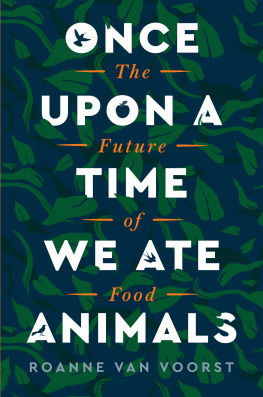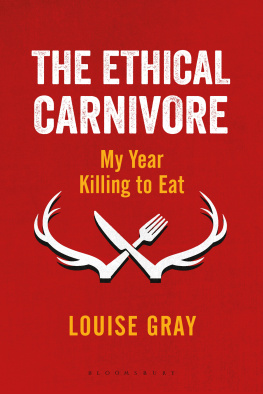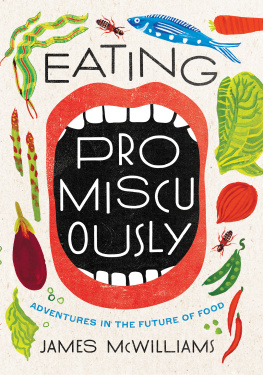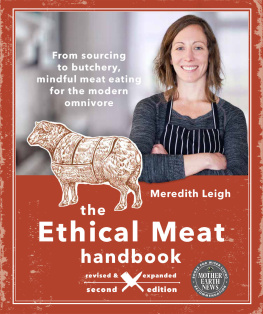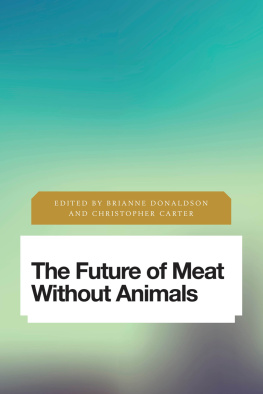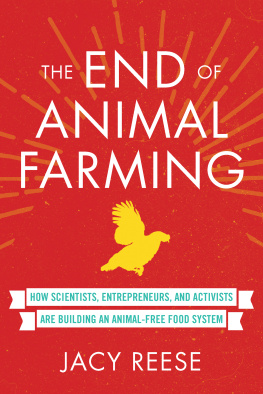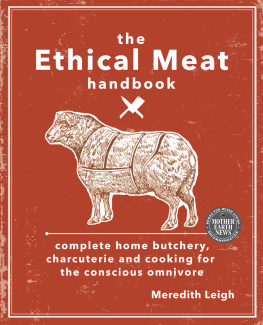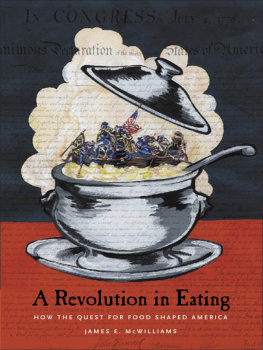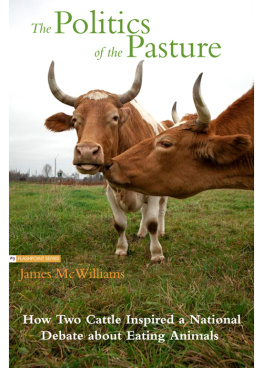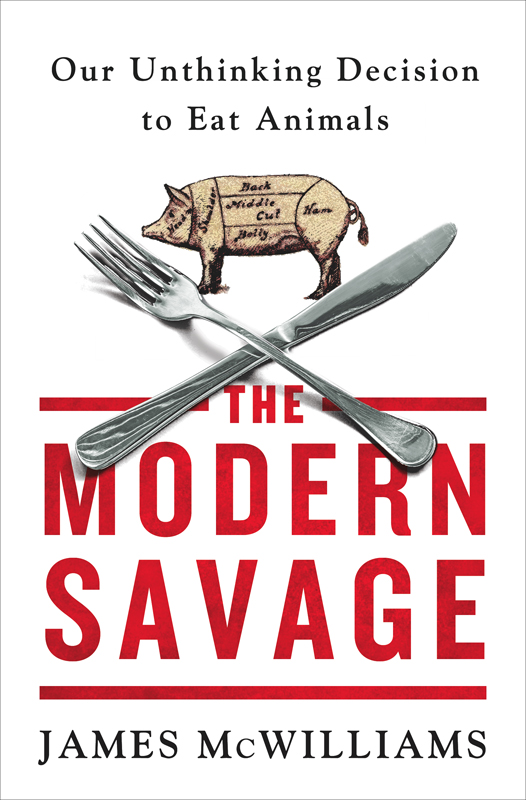Contents
Guide

The author and publisher have provided this e-book to you for your personal use only. You may not make this e-book publicly available in any way. Copyright infringement is against the law. If you believe the copy of this e-book you are reading infringes on the authors copyright, please notify the publisher at: us.macmillanusa.com/piracy.
For Cecile
CONTENTS
These are animals !
This is a personal book so Ill start with a personal story: I stopped eating animals in 2007 after watching a video of a calf being born on a dairy farm. A worker dragged the calf from his mother immediately after he hit the ground. The calf strained his head backward to make contact while being yanked away. The mother exploded into a rage. She bolted after her baby and bucked madly when the gate slammed in her face. Seconds later, denied contact with her calf, she wailed the saddest noise Id ever heard an animal make. The mother dug at the ground and buried her nose in the placenta. People always say that cows are stupid animals. Well, sitting in my office, I decided that this one wasnt.
I was in a trance. I had no idea what was happening respecting brain chemistry, animal instinct, or bovine behavior. I just knew that I was upset. Repulsed. I knew I wanted nothing to do with what Id just seen. Absolutely nothing. No amount of milk, cheese, or meatno matter how delicious it tasted or how central it was to my culinary tradition or how it connected me with a communitycould justify this long-obscured form of cruelty, cruelty so hidden in plain sight that it somehow took me thirty-six years to recognize and identify it as wrong.
My thoughts went directly to the birth of my son. His delivery was problematic. His little body refused to push his big head into the world. A bleary-eyed team of medical people gathered around, looking less and less assured as they worked. Something about the umbilical cord and his neck. He finally emerged, but when he did, all hell broke loose. He wasnt nestled into his mothers arms the way you see in the movies. Instead, he was rushed to an examining table and surrounded by a scrum of doctors and nurses, who worked on him in a silent, terrifying frenzy. Theres no describing how I felt at that moment, but I do know that the floor rocked beneath me and I thought, If they take him out of this room, Ill go crazy. Then, in an act of mercy Ill never forget, a male nurse looked over his shoulder and assured me that I was the father of a healthy boy. Seconds later, I was holding him.
DARWIN
Over a decade later, with my son now almost as tall as I am, recalling these events still moves me. Many people, though, have a different reaction to this juxtaposition. Theyre disturbed by it. How, after all, can a human birth be compared to the birth of some wobbly calf? How can my emotional reaction, without indulging in childish anthropomorphism, be legitimately juxtaposed with that of a farm animal? How dare I even mention these experiences on the same page, in the same breath, with the same level of concern? As one skeptic commented to another in response to an article I wrote on animal emotions, These are animals !
To which I respond, exactly . These are animals. And the differences between us and them are, no doubt, inexplicably vast. But not as vast as we might like to think. No rational person would claim that the psychological nature of my reaction was equivalent to the mother cows psychological reaction, or that a person is in any way inherently equal to a cow. That would be unfair to humans and to cows, and it would cheat the beauty of biological diversity. The emotions of fear, sadness, betrayal, and the primordial urge to connect with ones offspring are unique for bovines and humans alike. In so many ways, well never understand their emotions and theyll never understand ours. We are worlds apart.
But were not in different universes. I have a perfectly legitimate reason for tapping my own experience to appreciate the cows experience: we share an evolutionary heritage. Evolutionary biology connects my anxiety about my newborn child to that of a mother cow. It highlights an essential emotional bond that links us across time and space and ensures that, when I look into the eyes of a farm animal, Im not looking into the eyes of an alien creature. Im not looking at an object. Im connecting with a sentient being who, like me, hates pain, craves pleasure, and, at the end of the day, doesnt want to be slaughtered or have her child raised in a crate to become someones dinner.
Just as our physical eyes developed through biological evolution, so too did the emotions those eyes express. The mother cow I witnessed erupted in anger for the simple reason that she wanted her baby. I nearly passed out with fear because I wanted mine. In the heat of the moment, we both experienced an amalgam of horror, rage, and a sense of loss. That Im able to write a book about it and the cow cant is, when it comes to eating animals, irrelevant. What essentially matters for this comparison to be meaningful is that we both suffered. Not the same suffering. But suffering nonetheless. To think that mother cows dont suffer when their calves are taken is to willfully ignore the evolutionary bond we share with them.
The idea that such a connection exists isnt as radical as it might seem. Charles Darwin wholeheartedly endorsed it. He insisted that humans shared not only physical but cognitive and emotional space with nonhumans. We have seen, he wrote in The Descent of Man (1871), that the senses and intuitions, the various emotions and faculties, such as love, memory, attention and curiosity, imitation, reason may be found in the lower animals.
My experience with the birth of my son confirmed this point in a very personal way. At a time when concerned consumers of food have never discussed the details of food and agricultural production with more interest and conviction, I am motivated to write this book because this fundamental claimthe claim that animals, like us, are living creatures that have an immense capacity to sufferhas been left off the table while the animals we claim to care so much about remain very much on it.
MORAL WORTH
To an extent, weve taken the necessary steps to treat animals with dignity. Were already intuitively aware of our emotional connection to them, as well as the nature of their inner lives. The anger currently directed at factory farming reflects this sentiment. It highlights the intensifying frustration we feel about how animals are treated in industrial agriculture. Decent people condemn the systematic confinement of animals in cages so tight they cannot turn around or spread their wings. We find it abhorrent that they live in squalor and die in slaughterhouses that collectively kill twenty thousand animals every minute in the United States. We think its obscene that these animals are treated instrumentally, pumped with antibiotics, vaccines, and growth hormones to enhance their productivity. We lament the routine mutilation perpetrated on their confined bodiesthe tail docking, dehorning, debeaking, ear notching, branding, nose-ringing, and castrationall without anesthesia. We feel disgust when we watch undercover videos of animal abuse on factory farms. We are genuinely moved, often powerfully so, by the ubiquitous reality of factory farming because we know intuitively that animals experience the harm thats being inflicted upon them.
Through this recognition weve come to acknowledge that animals should be treated as living beings instead of inanimate objects. In acknowledging this point, were hardly advocating a radical animal rights agenda. Instead, we are participating in a productive shift in consciousness regarding the reality of animal lives. When we oppose factory farming because factory farms treat animals poorly, were confirming our deep belief that animals matter. They matter because theyre sentient beings with a sense of self and a desire to live as the embodiment of that self. While we may not explicitly recognize it, we are in fact admitting that they have intrinsic worth, worth that warrants our moral consideration and, by extension, a fair and decent set of standards to guide that consideration. Popular condemnations of factory farms arent false rhetorical postures. We dont protest factory farming just because it feels good to do so. We do it because we know that its the right thing to do. Our concerns for animals in factory farms are thus genuine expressions of a basic moral truth in the face of a tremendous injustice. Our honest expressions of concern have direct implications for our most basic behaviors. Such as eating.


